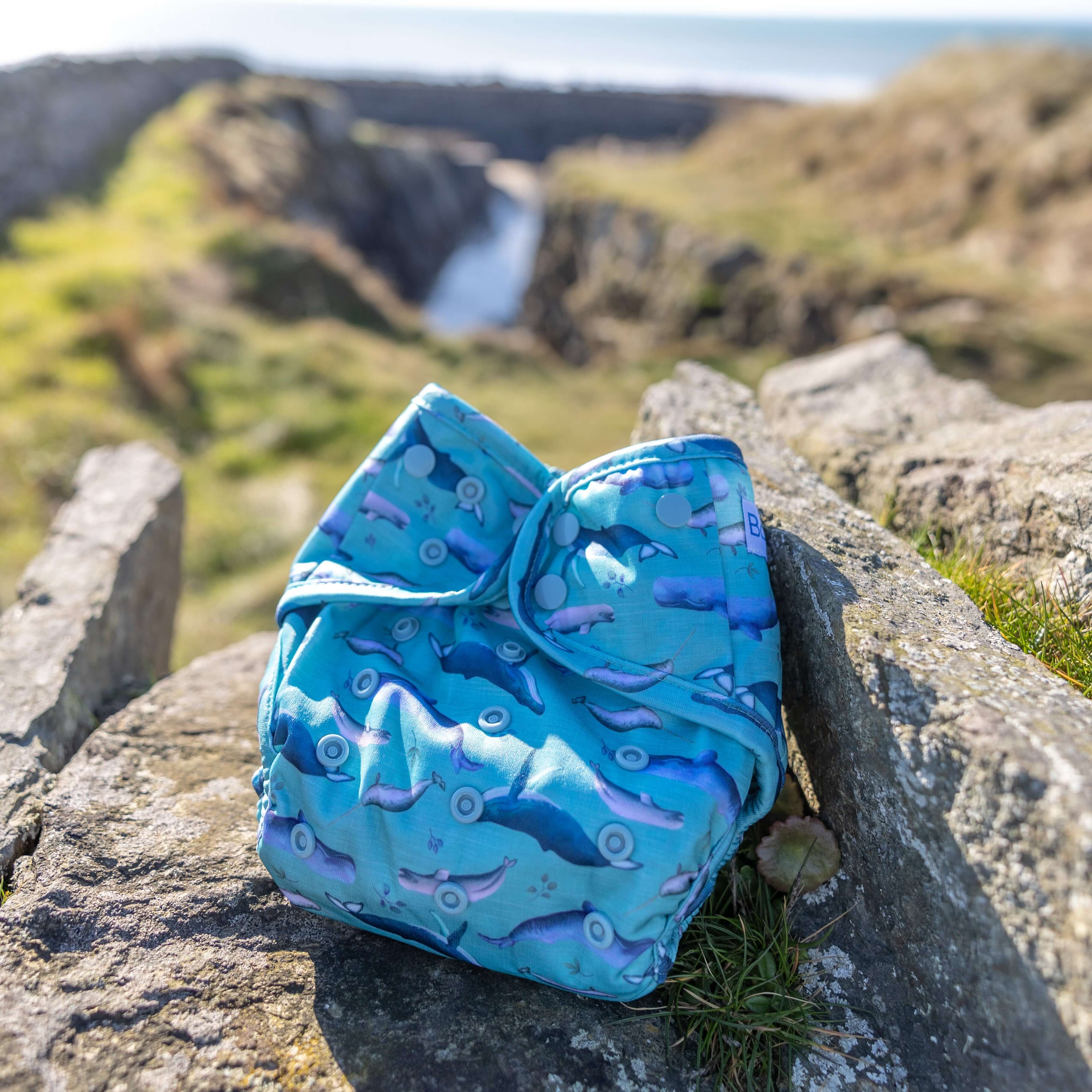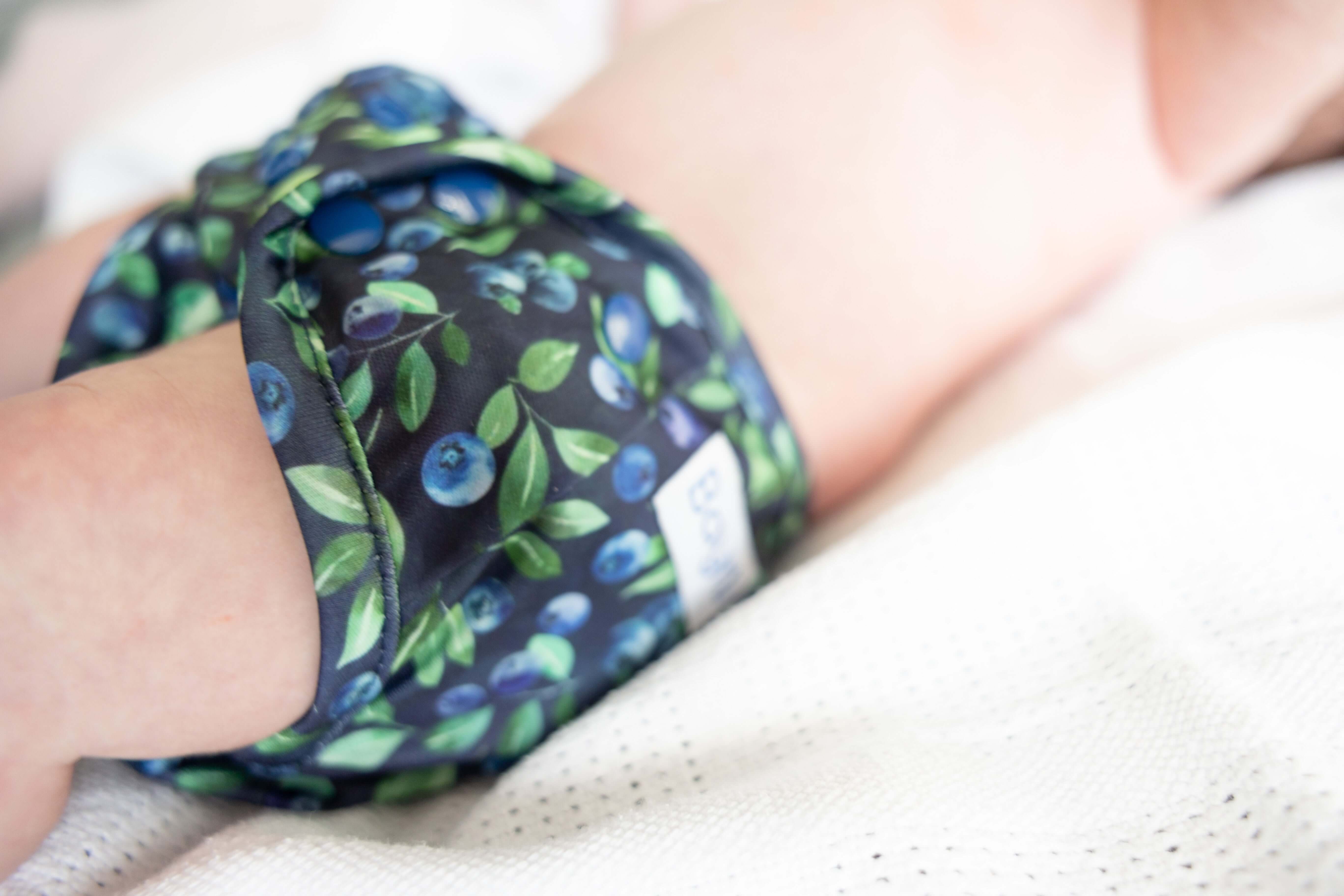
The environmental benefits of choosing reusable diapers
We believe so strongly in the necessity to leave this world better for our next generation that we created a brand to do just that. But it is important to show why we do what we do. Here at Bayrli we are often asked about the environmental benefits of switching from disposable diapers to reusable diapers. So here is a brief explainer as to why you should consider making the switch from a purely sustainable angle.
Disposable challenges
Let’s start with a simple statement: the modern, single use diaper is one the best ever inventions and represents extraordinary value for money when you consider the materials used within them and years of development behind them.
However, disposable diapers are the single largest outlay a parent will have in the first three years of their baby’s life. They leak, they smell, they don’t fit correctly, they’re a hassle to get rid of, and lately, it is often a lottery to see them on your supermarket shelves. They are a consumable item; not only are they hit first by inflation, once used, you have nothing left to show for them.
Landfill & Pollution
They are one of the most common man-made pollutants on the planet. Each year in Ireland alone (one of our home countries), nearly 100 million disposable diapers will be dumped in landfills where they'll stay intact for centuries as they decompose. The very first disposable diaper which was introduced to the world in 1961 is probably still in a landfill, intact. If so, it will remain there for another estimated 450 years before it completely decomposes. And those first disposable diapers have since been joined by billions more just like it.
In Ireland and in the United Kingdom it's estimated disposable, single-use diapers account for 7% of waste in all landfills. In this increasingly threatened world we inhabit, and with a generation of parents who are growing ever more uncomfortable with the idea that their children are the cause of so much waste, especially waste made up of stubborn plastic and synthetic chemicals all wrapped around human faecal matter, we can help those parents make that change to cloth diapers. Disposable diapers cannot be recycled and must go to thermal treatment plants or landfill.
A simple way to reduce this impact
Every Bayrli cloth diaper purchased means over 300 fewer disposable diapers ending up in landfill sites. A baby who uses disposables will generate around 850kg of diaper waste during its first three years of infancy, and many children require up to 3 years to grow out of diapers.
If a group of just 25% of parents are going to switch to reusable diapers for their babies, the reduction of total waste in Europe alone would exceed 2.5 million tonnes per year. For every €1 spent on disposable diapers, there is a financial cost to the taxpayer of 10c to dispose of them.
What does the science say?
There has been a mixture of confusion and incorrect information regarding the environmental impact on the use of cloth diapers, and much of this stems from a largely discredited report in 2005 from the UK Environment Agency. It is important to note that this report on reusable diapers, which is readily available to view online makes multiple assumptions regarding both cloth and disposable diapers that are simply unrealistic and untrue.
First, let us point out that not all diapers are washed at 90 degrees Celsius, in fact we have yet to come across a brand that recommends such a high washing temperature for reusable diapers. Here at Bayrli we strongly encourage parents to wash their reusable diapers between 40 to 60 degrees Celsius (104-140F).
Second, not all diapers are tumble dried every second day. In fact, when we surveyed a sample of 50 parents, absolutely none reported doing their diaper laundry more than twice a week. Most brands do allow for tumble drying (as do we), but they also advise against doing this daily as over time it can slowly damage the fabric that makes the diapers waterproof. We are proud to say Bayrli diapers do not suffer from this degradation.
Third, not all reusable diapers need extended wash cycles. Most of our loyal customers and indeed we ourselves do a wash every 3-4 days with a short pre-wash/rinse cycle at 40 degrees Celsius and then a longer, warm main wash at 60 degrees Celsius.
The washing machines and dryers today are also significantly more efficient than those from two decades ago. These are simply undisputed facts thanks to the advancement in design, technology, and the demand from customers for the most efficient machines available. Since 2005, every major credited and respected study of note has strongly encouraged the use of cloth diapers, including a detailed study from Zero Waste Europe in 2020, which is supported by the LIFE Programme of the European Union.
A one size reusable diaper from birth to potty, is good for the environment. There. We said it. And they said it.
A critical update
We should also note that the 2008 update from the UK Environment Agency broadly arrived at the opposite conclusion to their previous report: reusable diapers are the more environmental choice by far if you wash and care for them properly. And most parents do this. They consider their choice, opt to reuse, and care for their diapers. However, much damage had unfortunately already been done.
The 2005 report led to so many parents believing that reusable diapers produce just as many CO2 emissions through their life cycle from manufacturing to packaging to washing compared to disposables, or dismissed using cloth diapers altogether due to concerns over vastly increased water consumption, which again is factually untrue.
Considering laundry
However, the manufacture and packaging of disposable diapers for a baby has an ominously greater environmental impact than disposing of them. Multiple references cite that it takes over 1500 litres of crude oil to produce enough disposable diapers for one child. This is utterly ridiculous and simply unsustainable. It must also be noted that it takes 10 times more water to produce disposable diapers than the water used to wash reusable cloth diapers over their expected lifetime (3 years). Bear in mind that washing machines are becoming more efficient with each passing year, so these two numbers will grow even further apart.
For most disposable diapers, wood pulp is the primary component and the production of this is both exceedingly water intensive and is often a source of deforestation and widespread soil impoverishment. By making the choice to convert to reusable diapers with Bayrli, the carbon footprint of each reusable diaper can be reduced by 80% (assuming a modern A+ rated washing machine/tumble dryer is used), which is the equivalent to 350kg of CO2 emissions over 3 years.
A simple, sustainable switch
We are not perfect. And reusable diapers are not perfect. But they are a simple switch you can make to reduce your carbon footprint, and you’re safe in the knowledge that here at Bayrli we calculate and offset our entire operational footprint. We will continue to strive for better; a more efficient manufacturing process, even less waste, and a greener supply chain.
If you have any questions about making the switch to reusable diapers with Bayrli, how to wash your diapers as efficiently as possible, or how our unrivalled warranty further helps your switch, please let us know and we’ll be thrilled to help you.


